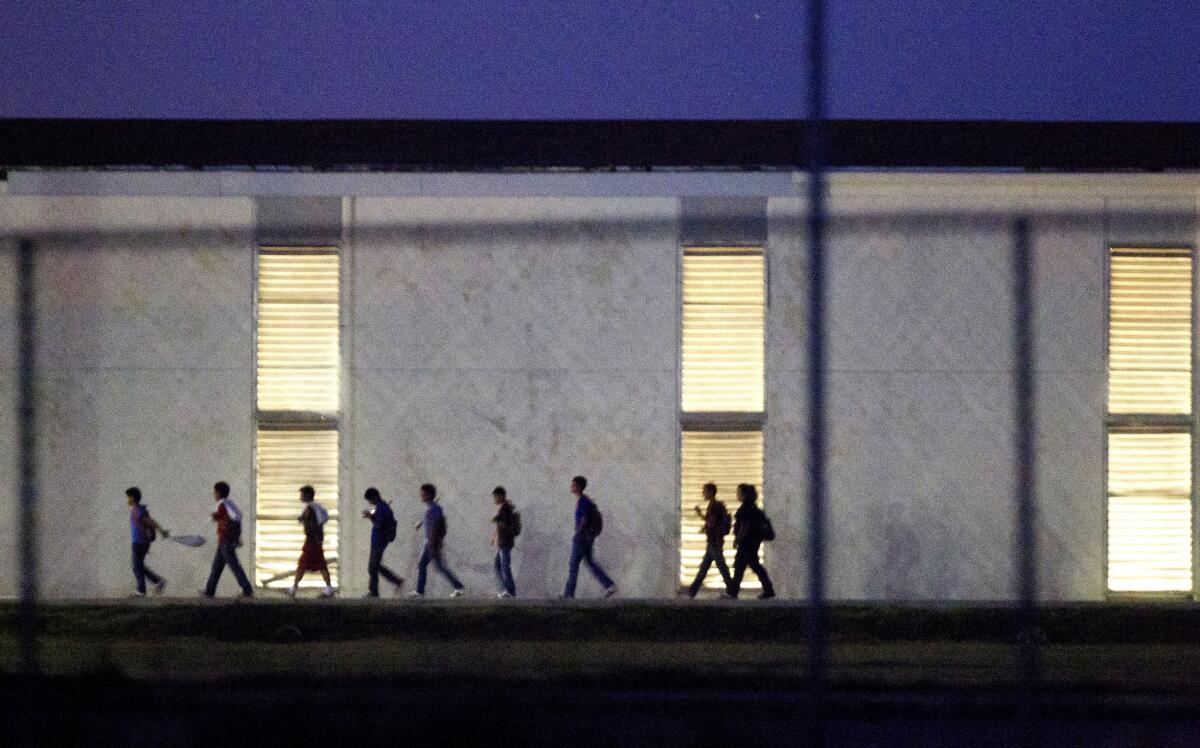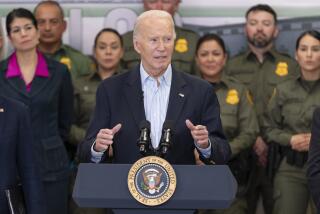Opinion: ‘An urgent humanitarian situation’ at the U.S.-Mexico border

President Obama on Monday ordered a new level of interagency cooperation to deal with what he described as “an urgent humanitarian situation”: unaccompanied minors trying to enter the country illegally. But it’s unclear exactly what this response will do beyond ensuring agencies talk to one another.
This is a real and growing problem. The Office of Management and Budget warned recently that the administration would need $2.28 billion in the 2015 budget to deal with the flood of minors caught at the southern border, a massive increase from the $868 million the administration initially requested in March. The influx has strained resources and led the United Nations High Commissioner for Refugees to urge international cooperation between the United States, Mexico and several Central American countries to try to disrupt the dangerous migration.
The driving force, according to the government and to immigration rights advocates, is high violence in Honduras, Guatemala, and El Salvador — much of it by gangs with U.S. connections — poverty and reduced economic prospects, and a desire to unite children with parents or other relatives already in the U.S.
Because the minors are caught up in the immigration system, they do not have access to legal representation, a problem that The Times editorial board wrote recently needs addressing. But the administration announcement didn’t touch on that issue.
Under the directive, FEMA head Craig Fugate was appointed to lead the Unified Coordination Group, which Fugate told reporters would focus on ensuring minors nabbed at the border spend no more than 72 hours in detention facilities before being turned over to Health and Human Services officials as the immigration cases progress. He also said administrators would look at better and more efficient ways of handling the human tide.
“We want to make sure that we are providing both the immediate needs but also building capacity,” Fugate said.
It’s unclear whether immigration reform measures stalled in the House would do much to address this specific problem, but immigration advocates have been lobbying the government to make the issue of unaccompanied minors a high priority. And it could be that the UNHCR has the right idea: Arresting kids at the border catches them near the end of the pipeline. A better humanitarian intervention would be to find ways to keep them from undertaking such a desperate journey in the first place.
More to Read
A cure for the common opinion
Get thought-provoking perspectives with our weekly newsletter.
You may occasionally receive promotional content from the Los Angeles Times.







